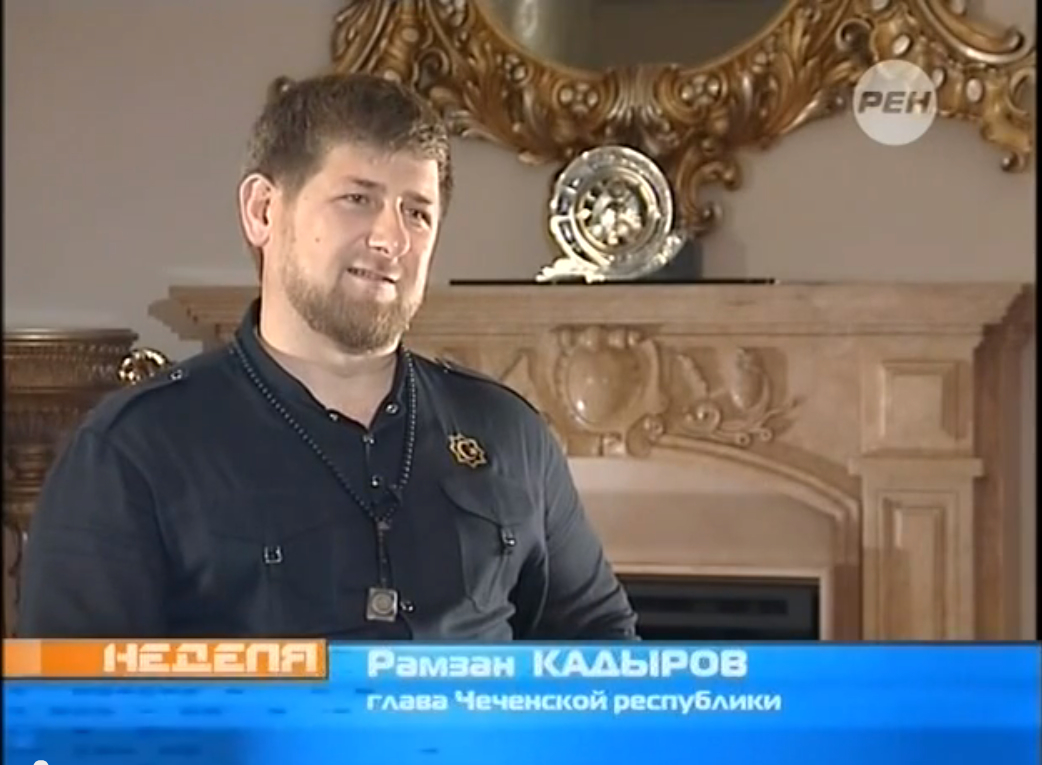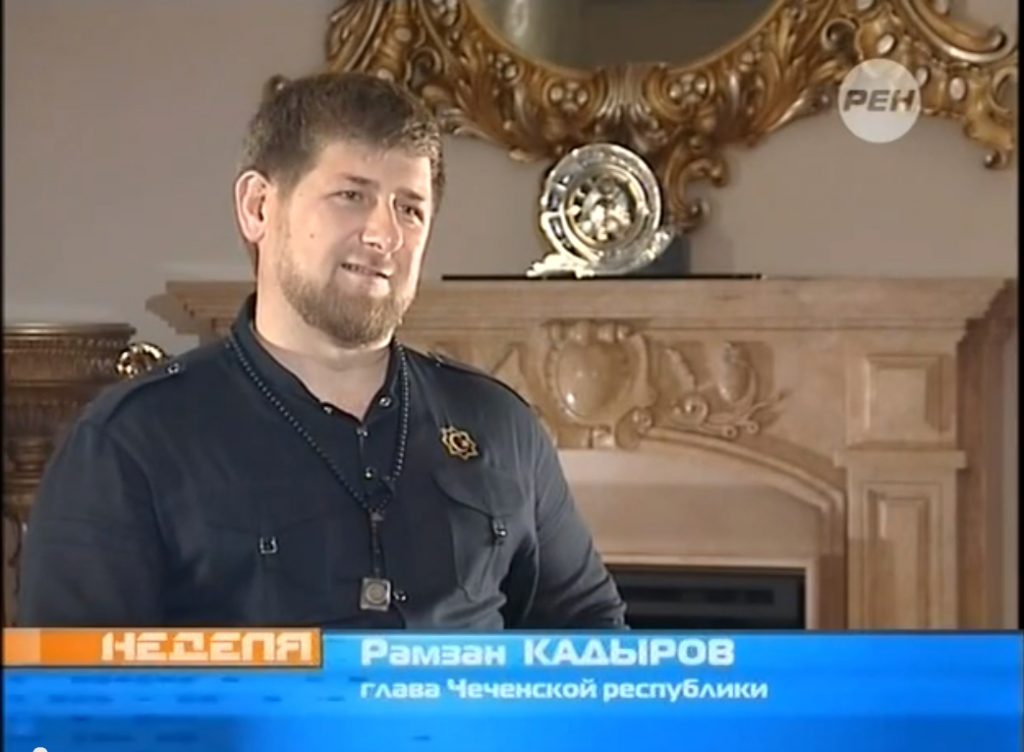 Ramzan Kadyrov, the Kremlin-allied president of Chechnya, has taken to Russian television to deny that he has sent any of his Chechen fighters to join the Russian-backed separatist militias in eastern Ukraine.
Ramzan Kadyrov, the Kremlin-allied president of Chechnya, has taken to Russian television to deny that he has sent any of his Chechen fighters to join the Russian-backed separatist militias in eastern Ukraine.
Kadyrov, a onetime rebel in Chechnya’s wars for independence from Russia, switched sides to ally with Russian leader Vladimir Putin in 1999. With Putin’s help, Kadyrov has ruled for years as the undisputed strongman of his region of 1.3 million people.
In the past ten days, Kadyrov has popped up as a figure in the fight over Ukraine’s Donbas (Donetsk Basin) region. Amid increased fighting in the city of Donetsk, journalists from several news organizations have interviewed Chechen fighters who described themselves as “kadyrovtsy,” or loyalists to Kadyrov. Some of them said Kadyrov had ordered their deployment to Ukraine, to fight for the separatist-declared “Donetsk People’s Republic.”
In an extensive television interview, a rarity for Kadyrov, he tells Russia’s REN TV, a privately owned channel, that the Chechens in Ukraine are there as volunteers, on their own.
Ren TV presenter Marianna Maksimovska introduces the interview by citing the arrival in eastern Ukraine of the Chechen fighters. “Everyone is interested. Did they come to Ukraine on Kadyrov’s orders – or by themselves, which no one believes? And why would Chechens decide to fight alongside Russian Cossacks [a community that traditionally has been the Chechens’ enemy] on the side of the Donetsk People’s Republic?”
In the interview, at Kadyrov’s palatial home in the Chechen capital, Grozny, Kadyrov and Maksimovska sit opposite one another in a spacious room. An ornate marble mantelpiece and a mirror in a heavy, golden, baroque frame are on one side, and large, curtain-draped windows on the other. The camera zooms in on Kadyrov’s dark shirt, with an embroidered Muslim crescent moon and star, and a necklace made of what appear to be prayer beads. A black brace encases his right thumb and wrist.
When Maksimovska asks about the Chechen fighters in Ukraine, Kadyrov says fourteen Chechens, some of them former military personnel, have joined the conflict there. “One was killed, four others wounded during the battle for the Donetsk airport,” he explains.
The Chechen president emphasizes that the men are volunteers, “I did not send them to fight,” he insists. “Why should I send Chechens to Donetsk when the ruling powers, the enemy is in Kyiv? I would have sent them straight to Kyiv. However they did not ask my permission.”
But you control everything here, insists Maksimovska – a mouse can’t sneak in or out without your knowledge.
“There are more than 100,000 displaced Chechens in Europe, we know for sure that some forty of them were well trained on NATO bases in France and transferred to Kyiv to help the authorities there. I am telling you officially that I did not send one Chechen to Ukraine,” says Kadyrov.
“But If an order is given, there will be volunteers. Seventy-four thousand Chechens are ready to go to Ukraine, ready to go there and enforce order,” he says. “Can you imagine, if fourteen people raised such a hullabaloo there, what it would be like if there were more? We are restraining them. If we weren’t doing so there would be a lot more of them there.”
“Chechens are fighters by nature. It’s in their blood, they miss fighting. I like fighting, it’s my life. I grew up amongst military activities. I loved preparing for military campaigns,” says the Chechen leader.
How do you control such a group of people who know how to kill, and like it? asks Maksimovska.
“They don’t like to kill; they like to protect the people,” Kadyrov corrects her.
Often struggling for words, speaking in phrases rather than complete sentences, Kadyrov tries hard to appear in control of some type of message: Donetsk is not Chechnya, if I sent fighters to Ukraine it will be different, I can’t tell Ukraine what to do. And then he laughs, constantly, unexpectedly, surprisingly.
In a tribute to traditional Caucasus hospitality, the interview ends in the dining room and kitchen, where three soups are bubbling away in a remarkably ornate and orderly kitchen. “I cook all this myself,” laughs Kadyrov as he stirs the borshcht.
As slender women in sky-blue head scarves begin bringing in plate after plate of food, placing the dishes on an ornate granite table, Kadyrov takes Maksimovska on a tour of his palace, explaining how he oversaw each step of the construction of himself. This luxurious residence has a special apartment for Vladimir Putin, which Kadyrov laughingly says he can’t show Maksimovska.
He does confess that the Russian president has never slept there.
Irena Chalupa covers Ukraine and Eastern Europe for the Atlantic Council.
Image: Ramzan Kadyrov, president of the Russian region of Chechnya, speaks from his home in a June 1 television interview. (Nedelia - REN TV)
